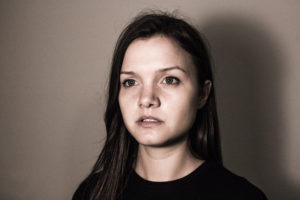
Q & A: Amy Crankshaw on Pauline Viardot, ‘Cendrillon’ & Orchestrating the Iconic Work
By Francisco SalazarOn Nov. 1, 2021, Guildhall School’s Opera will present a double bill of Bizet’s “Le Docteur Miracle” and Pauline Viardot’s “Cendrillon.”
The production will fulfill Viardot’s desire with a new chamber orchestration by Amy Crankshaw, Guildhall doctoral composer and a graduate of the school’s MA Opera Making & Writing program presented in an association with the Royal Opera House.
The performance will be available to watch online for free starting Nov. 17.
OperaWire had a chance to talk to Crankshaw about her new orchestration and her connection to Viardot.
OperaWire: What does Cendrillon reveal about Pauline Viardot as a singer and as an artist?
Amy Crankshaw: I discovered that Viardot’s musical influences are extensive and diverse. Given that she composed “Cendrillon” towards the end of her life (she was 84 years old when it premiered in 1904), it makes sense that the opera has woven into its fabric a multiplicity of influences. It is widely known that Viardot spoke, sang, and composed music for texts in several languages, including Spanish, French, Russian, Italian, English, and German. Her opera reveals some of these threads, for example, certain parts of the piano score have a 19th -century Germanic sensibility, while other parts of the opera feel typically French in their musical construction. Chopin’s influence is present in a few places, too. I think Viardot’s engagement with a range of different styles and aesthetics makes a larger scale piece like Cendrillon intriguing and sets it apart from some of the composer’s shorter works. The cross-cultural dialogue in the piece gives the opera a unique internal energy and shows that Viardot was interested in using her musical output – whether as singer or composer – to participate in a creative exchange between people, cultures, and aesthetics. By orchestrating her “Cendrillon” in 2021, I feel we are taking this idea of exchange one step further and opening a conversation between different periods in time.
OW: While orchestrating Cendrillon, what did you learn about the piece, and what did you discover that you had not heard before?
AC: Part of what makes an orchestration project like this so exciting is that a dialogue emerges between composer and orchestrator. In this case, it was a musical conversation reaching across two centuries. While working with the original music, I was not only investigating the potential for certain instrumental combinations, but also exploring the dramatic and musical intentions behind each phrase, and each larger section. There are suggested orchestral textures embedded within the piano score and in fact, these offered so many possibilities that I, as the orchestrator, felt welcomed by the music. I also discovered that Viardot seems to have a knack for carefully considering the durations of time in her music, which can be a challenge in larger-scale works incorporating dramatic narratives. She found a wonderful balance in the proportions of time given for each scene and each musical number, and I think this serves the opera well in keeping the listener curious. Given that Viardot’s music was composed during the Romantic era, and is considerably different to my own compositional style, I found myself appreciating an array of compositional methodologies seldom explored in my own work. I truly enjoyed that element of the collaboration.
OW: Why do you think this new orchestration is possible today and do you think there is a chance that this opera could get more visibility in the future?
AC: It’s possible today because “Cendrillon” is a vivid and multidimensional work, begging to be orchestrated. It’s also possible because there are musicians, directors, and opera makers such as those involved in this production who are genuinely interested in discovering Viardot’s compositions and bringing them to light. I do think there is scope for “Cendrillon” to gain more visibility; its charming combination of comedy and drama makes it fun to perform and to
witness.
OW: Tell me about your connection to Viardot. Why did you want to take on this opera specifically?
AC: I had heard about Viardot’s songs, and I know how much singers enjoy performing them. When Guildhall School of Music & Drama approached me to orchestrate “Cendrillon,” I was eager to take up the opportunity to study her work intimately through the orchestration process. I am delighted that I have been able to engage in detail with the music of a composer who had such a great influence on those around her during her lifetime.
OW: What do you hope this new orchestration will do for the work and what are you looking forward to people seeing?
AC: I hope it will help to illuminate certain aspects of Viardot’s music – not only the lush harmony, elegant melodies, and textural variety, but also the subtle and unexpected twists and turns in her music, revealing something to us about her
sense of humor and quirkiness. I hope other opera makers will continue to discover and explore this opera. I am really looking forward to people hearing Viardot’s instrumental music in the interludes, and to seeing the singers in action on stage as they perform their gorgeous vocal lines!


